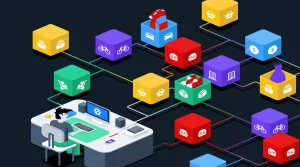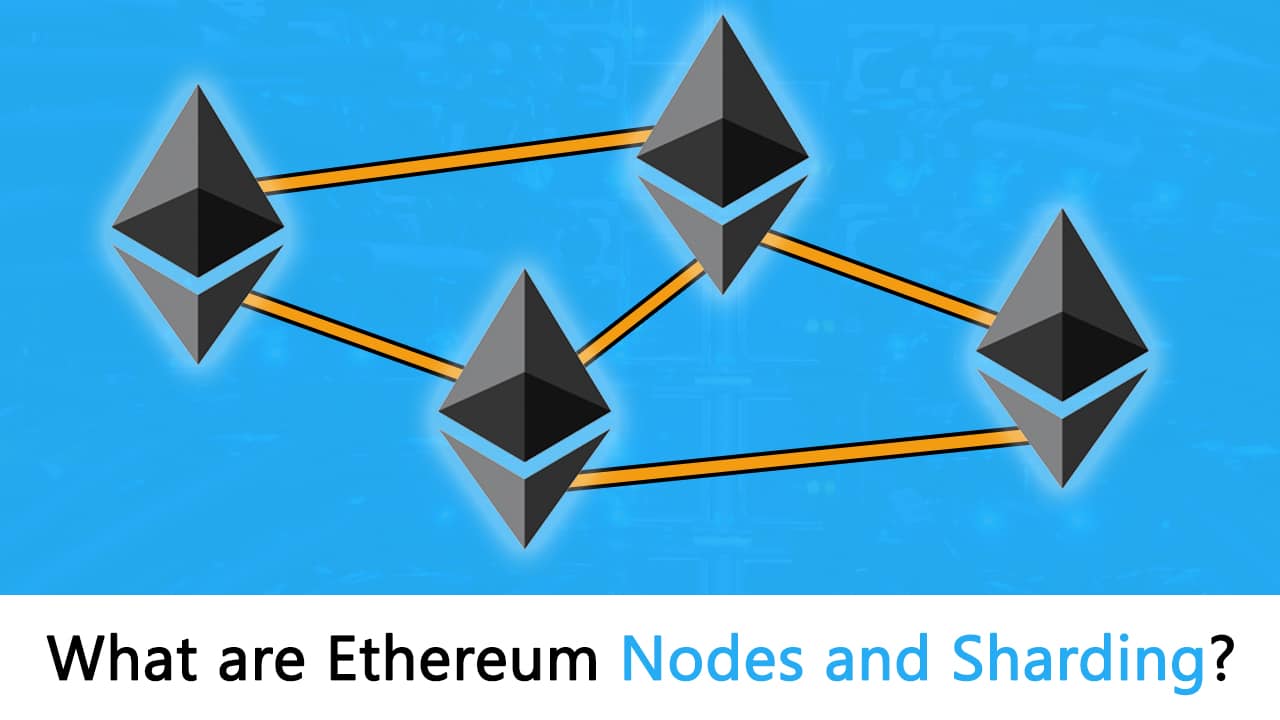In today’s digital age, the global trade landscape is constantly evolving. With the advent of blockchain technology, decentralized marketplaces have emerged as a powerful tool in revolutionizing global trade. This article explores the role of decentralized marketplaces in facilitating global trade and highlights the significant impact they have on various aspects of international commerce.
Introduction
Global trade has traditionally relied on centralized intermediaries, such as banks and marketplaces, to facilitate transactions. However, these intermediaries often introduce inefficiencies, high fees, and a lack of transparency. Blockchain technology, with its decentralized nature, offers a solution to these challenges. Decentralized marketplaces leverage blockchain to transform the way global trade is conducted, bringing numerous benefits to businesses and consumers alike.
Understanding Decentralized Marketplaces
Decentralized marketplaces are online platforms that operate on a blockchain network, enabling direct peer-to-peer transactions without the need for intermediaries. These marketplaces allow buyers and sellers from across the globe to connect, interact, and conduct trade securely and efficiently. By eliminating intermediaries, decentralized marketplaces offer a more democratic and inclusive approach to global trade.
Benefits of Decentralized Marketplaces in Global Trade
- Enhanced Security and Transparency
Blockchain technology ensures the security and transparency of transactions within decentralized marketplaces. Each transaction is recorded in a decentralized ledger, making it nearly impossible to alter or tamper with the data. This creates a high level of trust among participants and reduces the risk of fraud or manipulation.
- Reduced Intermediaries and Costs
Decentralized marketplaces eliminate the need for multiple intermediaries, such as banks, brokers, and clearinghouses. By cutting out these middlemen, businesses can significantly reduce transaction costs, enabling more competitive pricing for goods and services. This cost reduction benefits both buyers and sellers, fostering greater participation in global trade.
- Increased Efficiency and Speed
With decentralized marketplaces, transactions can be executed directly between buyers and sellers, eliminating the delays and complexities associated with intermediaries. The use of smart contracts automates the execution of agreements, streamlining the trade process and reducing manual intervention. As a result, global trade becomes more efficient and time-sensitive, allowing businesses to seize opportunities promptly.
- Access to Global Markets
Decentralized marketplaces provide businesses with access to a global network of buyers and sellers. These marketplaces remove geographical barriers, enabling small and medium-sized enterprises (SMEs) to expand their reach and tap into international markets. By connecting diverse participants worldwide, decentralized marketplaces foster greater competition, innovation, and economic growth.

Blockchain Technology and Its Role in Decentralized Marketplaces
Blockchain technology is the backbone of decentralized marketplaces, providing the necessary infrastructure to facilitate secure and efficient global trade. Several key features of blockchain contribute to the success of decentralized marketplaces:
Immutable and Tamper-Proof Transactions
Blockchain’s decentralized ledger ensures that once a transaction is recorded, it cannot be altered or deleted. This immutability provides an auditable and transparent record of all trade activities, enhancing trust among participants and reducing the risk of fraudulent transactions.
Smart Contracts for Trust and Automation
Smart contracts are self-executing agreements stored on the blockchain. They automatically execute predefined actions when certain conditions are met. In decentralized marketplaces, smart contracts eliminate the need for intermediaries by facilitating trust and automating trade processes. This eliminates manual intervention, reduces costs, and improves efficiency.
Enhanced Supply Chain Management
Blockchain technology enables end-to-end visibility and traceability in supply chains. By recording every transaction and movement of goods on the blockchain, decentralized marketplaces ensure transparency and authenticity. This allows businesses and consumers to verify the origin, quality, and authenticity of products, mitigating the risks of counterfeiting and fraud.
Seamless Cross-Border Payments
Traditional cross-border payments can be slow, costly, and prone to errors. Decentralized marketplaces leverage blockchain’s native cryptocurrency or stablecoin to facilitate fast and secure cross-border transactions. By eliminating the need for multiple currency conversions and intermediaries, decentralized marketplaces streamline international payments, reducing costs and improving settlement times.
Real-World Examples of Decentralized Marketplaces
OpenBazaar
OpenBazaar is a decentralized peer-to-peer marketplace that operates on the blockchain. It enables individuals to buy and sell goods and services directly without intermediaries. OpenBazaar leverages cryptocurrency payments and smart contracts to facilitate secure and censorship-resistant trade.
Origin Protocol
Origin Protocol is a blockchain platform that enables the creation of decentralized marketplaces. It provides the necessary tools and infrastructure for businesses to build their own peer-to-peer marketplaces, fostering direct trade and eliminating intermediaries. Origin Protocol aims to democratize global trade by empowering entrepreneurs and small businesses.
Soma
Soma is a social marketplace that leverages blockchain technology to facilitate secure and transparent transactions. It utilizes a community-based rating system to ensure trust and reputation among participants. Soma aims to create a decentralized ecosystem where individuals can trade goods and services in a social and interactive environment.
Challenges and Limitations of Decentralized Marketplaces
While decentralized marketplaces offer numerous advantages, they also face certain challenges and limitations that need to be addressed:
- Scalability
Blockchain networks, especially public ones, face scalability limitations. The transaction processing capacity of blockchain technology needs to be improved to handle the scale and volume of global trade effectively.
- Regulatory Concerns
The regulatory landscape surrounding decentralized marketplaces is still evolving. Governments and regulatory bodies are grappling with how to effectively govern these platforms while ensuring consumer protection, anti-money laundering measures, and fair competition.
- User Adoption
For decentralized marketplaces to realize their full potential, widespread user adoption is crucial. Educating businesses and consumers about the benefits and functionalities of these marketplaces is necessary to drive adoption and overcome the inertia associated with transitioning from traditional systems.
The Future of Decentralized Marketplaces in Global Trade
Decentralized marketplaces hold immense potential to transform global trade by creating a more inclusive, efficient, and secure ecosystem. As blockchain technology continues to mature, scalability solutions are being developed to address the limitations of existing networks. Regulatory frameworks are also evolving to foster innovation while ensuring compliance and consumer protection. With increased user adoption and advancements in blockchain technology, decentralized marketplaces are poised to play a vital role in the future of global trade.
The future of decentralized marketplaces in global trade is filled with immense potential and exciting possibilities. As blockchain technology continues to advance and mature, we can expect decentralized marketplaces to play an increasingly significant role in transforming the way international commerce is conducted.
One of the key aspects of the future of decentralized marketplaces lies in scalability. Blockchain networks are actively working on improving their transaction processing capacity to handle the growing demands of global trade. Scalability solutions, such as layer-two protocols and sharding, are being explored and implemented to overcome the limitations of existing blockchain networks.
Regulatory frameworks are also evolving to accommodate the unique nature of decentralized marketplaces. Governments and regulatory bodies are recognizing the importance of fostering innovation while ensuring consumer protection, fair competition, and compliance with existing regulations. As regulatory clarity improves, it will pave the way for wider adoption of decentralized marketplaces by businesses and consumers.
Moreover, as user adoption increases, decentralized marketplaces will witness a network effect. More participants joining these marketplaces will create a self-reinforcing cycle, driving further growth and innovation. The greater the number of buyers and sellers on these platforms, the more attractive they become, leading to a virtuous cycle of increased liquidity, diversity of offerings, and improved user experience.
In conclusion, the future of decentralized marketplaces in global trade is bright. With ongoing technological advancements, evolving regulatory frameworks, and increasing user adoption, these marketplaces are poised to disrupt traditional trade systems and create a more inclusive, efficient, and secure global trade ecosystem.
Conclusion
Decentralized marketplaces powered by blockchain technology have the potential to revolutionize global trade. By eliminating intermediaries, enhancing security, reducing costs, and enabling direct peer-to-peer transactions, these marketplaces offer a more efficient, inclusive, and transparent approach to international commerce. While challenges remain, the future of decentralized marketplaces looks promising. As businesses and consumers embrace the benefits of blockchain and decentralized systems, the global trade landscape is set to undergo a significant transformation.
FAQs
Q1: Are decentralized marketplaces only for cryptocurrency transactions?
No, decentralized marketplaces can facilitate transactions with both cryptocurrencies and traditional fiat currencies. They provide options for participants to transact using the currency of their choice.
Q2: How do decentralized marketplaces ensure the quality of products and services?
Decentralized marketplaces often incorporate reputation systems and user ratings to ensure the quality and trustworthiness of participants. These systems enable buyers to make informed decisions based on the experiences of previous customers.
Q3: Are decentralized marketplaces vulnerable to hacking or cyberattacks?
Decentralized marketplaces leverage blockchain technology’s security features to enhance protection against hacking and cyberattacks. However, it’s important for participants to adopt best practices, such as securing their private keys and using trusted platforms.
Q4: Can decentralized marketplaces operate across different industries?
Yes, decentralized marketplaces have the potential to operate across various industries. From e-commerce and supply chain management to sharing economies and peer-to-peer lending, these marketplaces can transform multiple sectors by enabling direct trade between participants.
Q5: How can small businesses benefit from decentralized marketplaces?
Decentralized marketplaces provide small businesses with access to a global customer base and the opportunity to expand beyond their local markets. By eliminating barriers to entry and reducing transaction costs, these marketplaces level the playing field, allowing small businesses to compete on a global scale.
I’m a best-selling author and leading authority in the world of cryptocurrency. I have been involved in the crypto community since 2012 and have helped numerous startups and organizations on blockchain strategy. I am a regular contributor to Forbes and CoinDesk, and my work has been featured in The Wall Street Journal, Bloomberg, Reuters, and other major media outlets. In addition to writing for publications, I am also a sought-after speaker on cryptocurrency and blockchain technology niches respectively.



